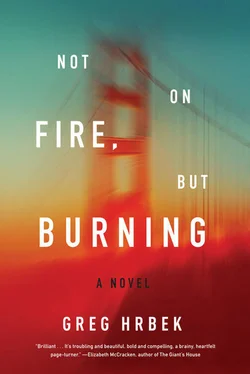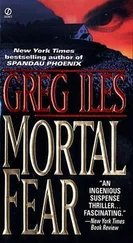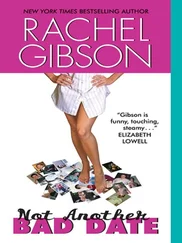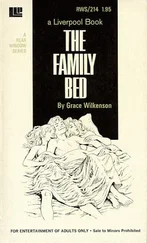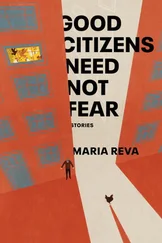“Uncle,” Yassim says. “I know.”
“You know.”
“I mean, I just have an idea. Like if we were both in the video, I could hold the gun while Karim reads the paper. Then we switch.”
For a moment, it seems the uncle is going to spit on him, and Karim thinks of when the uncle handed him the knife, and wonders what if, in a moment of spontaneously channeled violence, he had used the knife on man instead of dog. Why didn’t he? Karim was that close to him; close enough that, after taking the weapon in hand and turning to the dog, he could have reversed himself without forethought or warning and buried the long curved blade into the man’s belly and sunk it in by pushing with hands and arms while shouldering and running against the weight of his full-grown body, forcing him backward and floorward and falling with him and on top of him, maintaining a firm grip on the handle. And now a situation not dissimilar. The uncle having already put in Karim’s hands another (deadlier) weapon, though he had made a point, just before giving it to Karim, of ejecting the magazine and placing it on the table beside the vests, where it is lying even now, as the expression on his face is changing, or maybe staying the same but revealing itself to be something different than what it had seemed to be … In any event, he doesn’t spit. He says: “Not a bad idea.” The other (shrugging): “They will be smaller in the picture.” But the uncle is already taking the unloaded rifle off the table and giving it to Yassim, then lifting one of the vests from the table and telling Karim to come, and Karim doing as he says and offering an arm and the man slipping a sleeve over his shoulder. Telling the other: “Think outside the box, sadiq. It will be a message of solidarity, inspiring other young people to join with a friend in martyrdom.” And then to Karim: “Don’t you think, ebnee?”
Ebnee.
And you thinking: I am no son of yours . While thinking also of the man to whom you are in fact a kind of son, who must be sitting in that house now, in the room he made for you, on the chair in a room you will never return to, before the desk upon which you left that old battered book. Open. Open to the page with the blood smear and the words about Paradise. Which you left there deliberately, as if the verses of that sura would explain sufficiently where you have disappeared to. A world of gardens and fountains. And why you did what you are going to do. Because it was the only way to get there. The only way, jaddi … But how can you? How can you walk into that place called Urgent Care and pull the cord hanging from the front of the vest that you are now wearing (which your body is now registering the full weight of), igniting the explosive liquid in the tubes taped there, and propelling the ten pounds of nails, screws, and ball bearings toward the hearts and heads of a hundred (maybe more) sick and terrified people, some of whom, far from being inimical to you, might be nothing but sympathetic: who, if given a choice of helping or hurting you, would help, just as the old man seated at that desk, looking even now at the open pages of the book, had helped you … And while thinking all this, you are also speaking, though not any words that parallel your thoughts. You are reading from the paper while Yassim stands beside you holding the rifle and the second man points his smartphone, you reading though not hearing your own voice though you know a voice is coming out of you and being recorded and the voice which is yours but also not yours, saying: He ejected the magazine from the gun. But this vest you are wearing. What if you pulled the cord right now. Reached for the cord without apparent forethought and no warning and pulled. The explosive liquid would be ignited here. In this ugly room. And there would be no bombing in that hospital tonight. And the declaration of martyrdom now being recorded will never be uploaded and never viewed, and will never encourage any other boy to do what you are on the verge of doing —and so it might be said that at the end you did a good thing, Karim, a good thing at the end. To accomplish it you need only move your hand the space of a few inches, feel the cord and pull. Suddenly. Without premeditation. Without reasoning. For all thinking on this subject is nothing but instinct. An omen in the nerves and muscles a moment before the cerebellum sends the requisite command, which it is about to do, about to generate the action potential that will spread through the muscle fiber network and prompt the pulling of the cord when the sound comes through the wall behind you: the baby: crying again: so near, so clear, there might be no barrier at all.

What is happening to Dorian Wakefield behind the closed shower door in the bathroom of his family’s safe room? Insofar as an “answer” to this question is relevant when so-called physical laws are in the process of being eroded (or perhaps a more accurate phraseology: when such laws are being, if not revised, than at least superscripted by the human mind ), that answer might best be attempted through a process of historical comparison across the horizontal axis of the grid. At a distant point in the past, in Quadrants I or IV (say, x = −500), Dorian’s experience in the shower would almost certainly be considered supernatural, a mystical vision or a demonically induced delusion. At x = 0 (his present moment), a psychiatrist like the one he saw for two months back in the fall might diagnose a dissociative disorder, possibly an episode of depersonalization brought on by the panic caused by the fear of his mother dying and the fear of his own probable death. At future points on the axis, however (in Quadrants II and III: at, for example, x = 109), we know that what is actually happening is this: He is thinking of a point in the far reaches of the first quadrant — and that point, that summer from the past of a different pathway, is the very same one that his mother has been imagining-as-remembering while in the throes of a multisystem syndrome that is soon going to cause cardiovascular collapse. And the configuration of that point, that moment from another past, is so convincing and so longed-for (and we could say necessary in the context of a present situation moving rapidly toward total darkness), that Dorian is consumed by a sudden surety that the events transpiring here and now (at 0, 0) are not real at all.
“Dodo,” his father says.
“Mm.”
“You all right in there.”
“Yeah.”
“Can I open the door?”
And the door opening and Dorian exiting the little enclosure, unsteady on his feet, a rush of disequilibrium in his head, which might be a symptom of disease, but feels to him more like a kind of physiological adjustment, as if he has been at a great depth of water and is returning now to a surface.
“Dad. I’m going to tell you something. It’s important.”
“Sure.”
“It doesn’t really matter what you say back. It’s just important I say it, because it’s going to help us get out of this.”
(Nodding.) “All right.”
“She picked me up at school that summer.”
(Still nodding.) “Who did, pal.”
“Skyler. She was home that summer, not in the city. And you remember the firehouse?”
“Yeah.”
“And remember that sign? It told you about the fire danger. Every day, I would explain it to her. Like, it’s red, red means high … I just remembered that.”
“Listen, Dodo. I want you to put this in your mouth and hold it there until it beeps. Okay?”
He does as told. Sitting very calmly and pressing his tongue down, keeping the thermometer steady. His father on his knees beside him, a hand resting nervously on his shoulder. And now beeping. And his father taking it and angling it in front of his eyes. Saying: Normal. 98.6. And then: “All right. Cliff, come here. Listen, guys.” And telling them to sit tight. “Stay in this room. Keep the radio on. I’m going to make sure Mom is taken care of and then I’ll be back. An hour at the most. Then I’ll be home.”
Читать дальше
